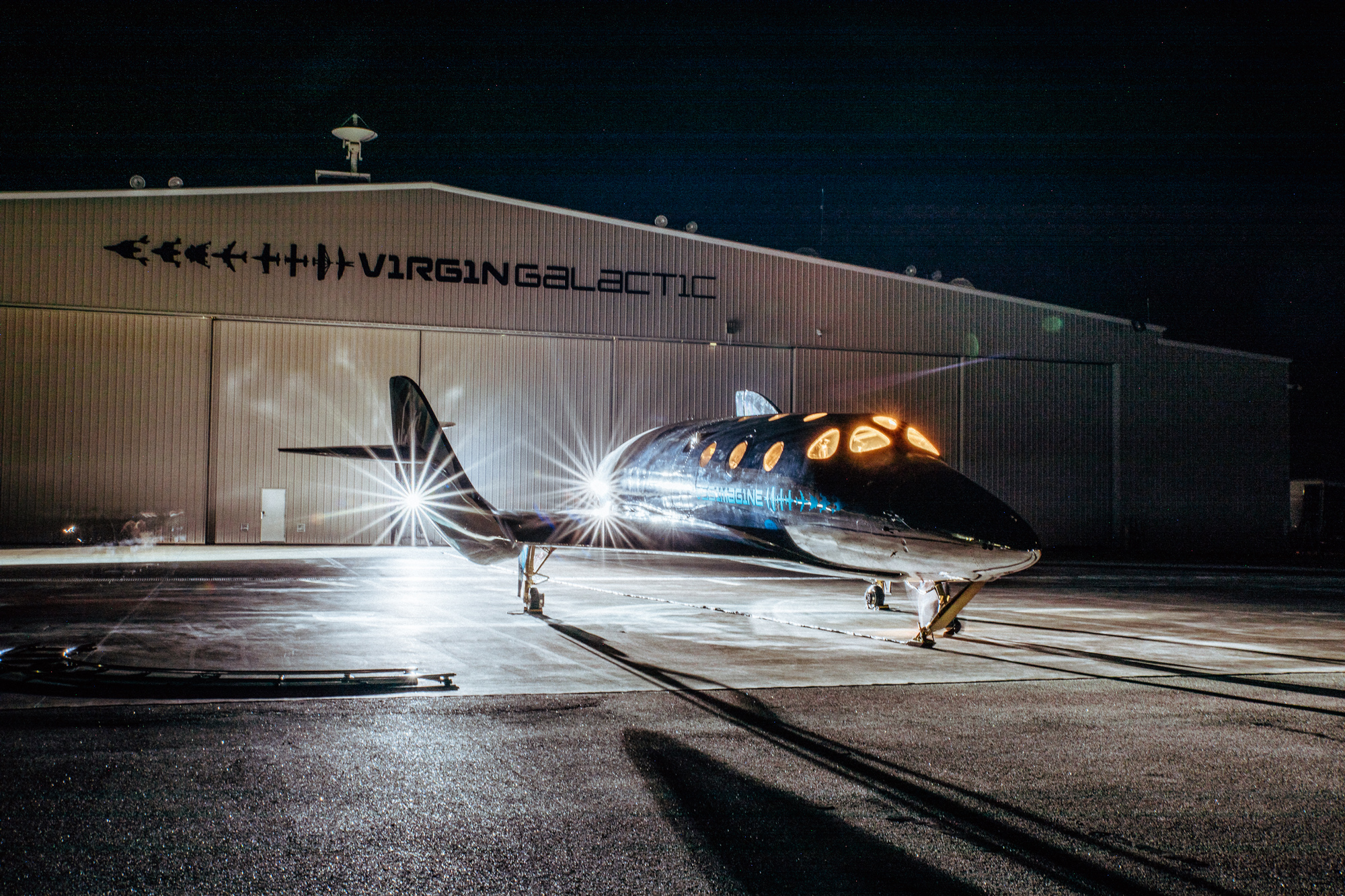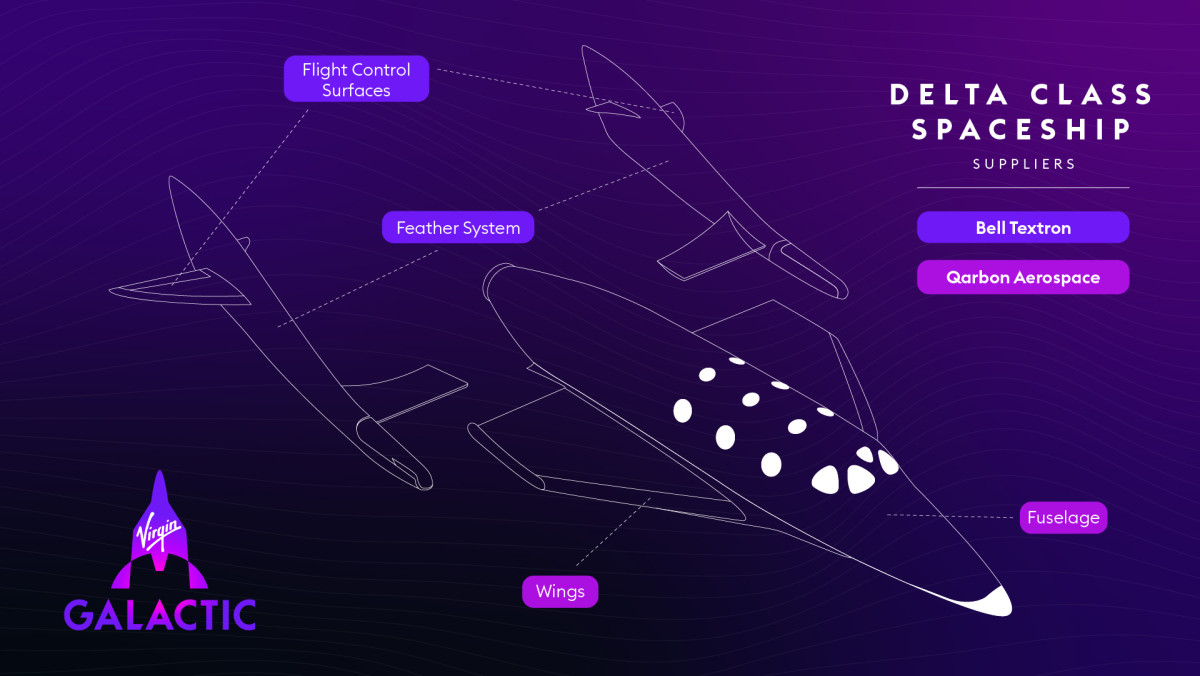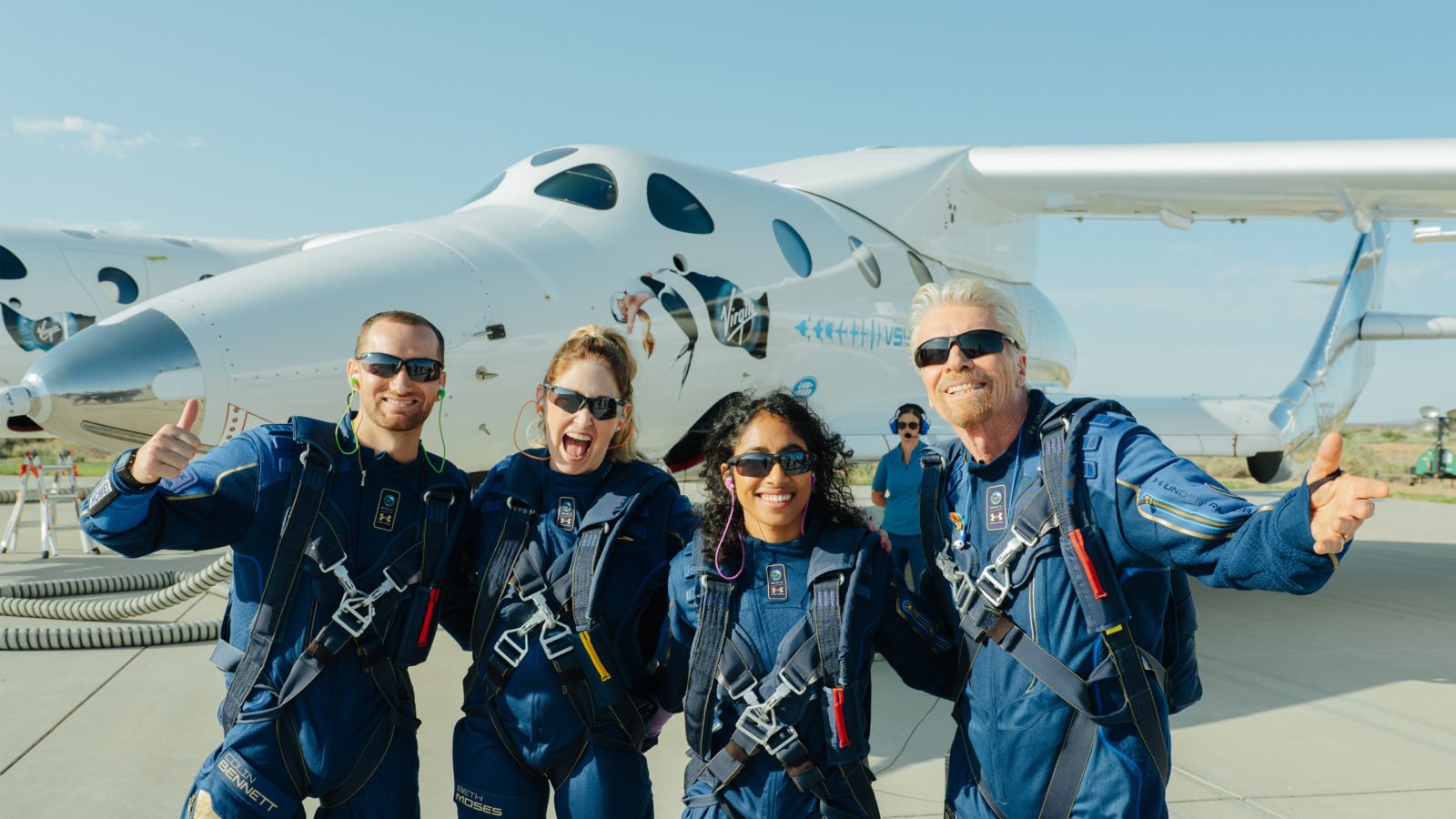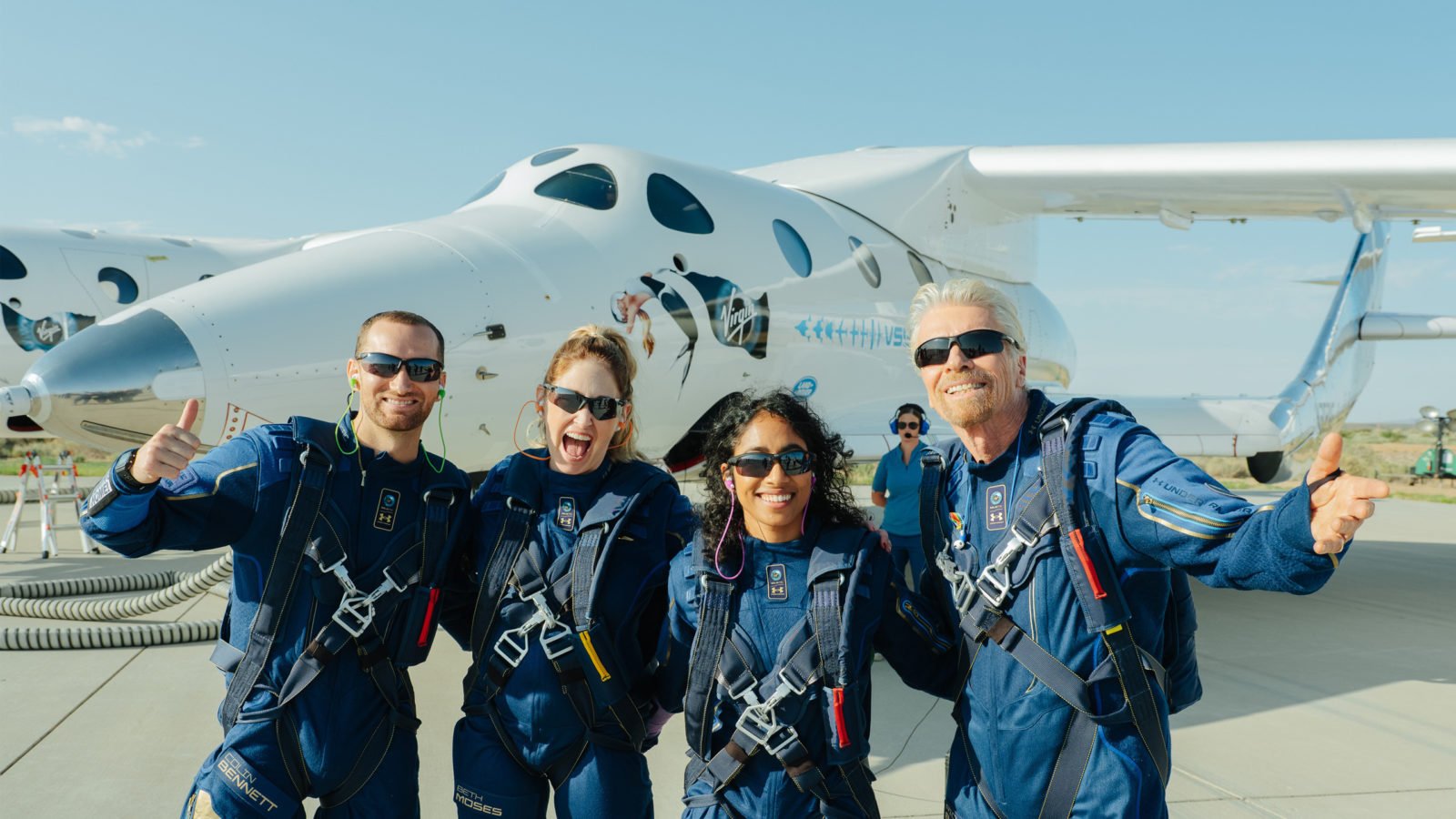What happened
Shares of space tourism start-up Virgin Galactic Holdings (SPCE 2.20%) lifted off early Friday, rising as much as 5.6% before gravity reasserted its hold upon the stock. As of 12:07 p.m. EDT today, Virgin Galactic shares' gain had been cut to 1.4%.

The VSS Unity over New Mexico on Thursday. Image source: Getty Images.
So what
The reason for today's rise and fall in the stock: Virgin's plans are on track.
Earlier this year, Virgin Galactic promised its shareholders that it would complete flight tests and begin commercial operations this year, flying its first group of paying customers to the edge of space at $250,000 a ticket. As little as a year later, said Virgin, it would be profitable.
On Thursday, Virgin took another step toward that goal, flying its second glide test of its VSS Unity spaceplane over New Mexico. The company promised to move ahead, once the test results have been analyzed, to resume testing the Unity's rocket engine in preparation for using that engine to carry human tourists to space.
Now what
That's certainly not bad news, and presumably, the fact that Virgin's spaceplane didn't crash during its test may have sparked something of a relief rally this morning.
But all Virgin Galactic really told us was that its VMS Eve mother ship, which carries Unity to altitude before releasing it to rocket into space, flies just fine, as does Unity itself. That's gratifying to hear, but it wasn't really news, given that Virgin Galactic has already tested both units of its flight system multiple times before.
The promise of yet more testing of the rocket engine isn't really news, either; that, too, has been tested. And Virgin Galactic didn't update investors on its timeline, or give a precise date when it expects to conduct its first commercial flight.
Now that investors are realizing that Thursday was actually kind of a no-news day, enthusiasm for this spacey tech stock is understandably waning.






